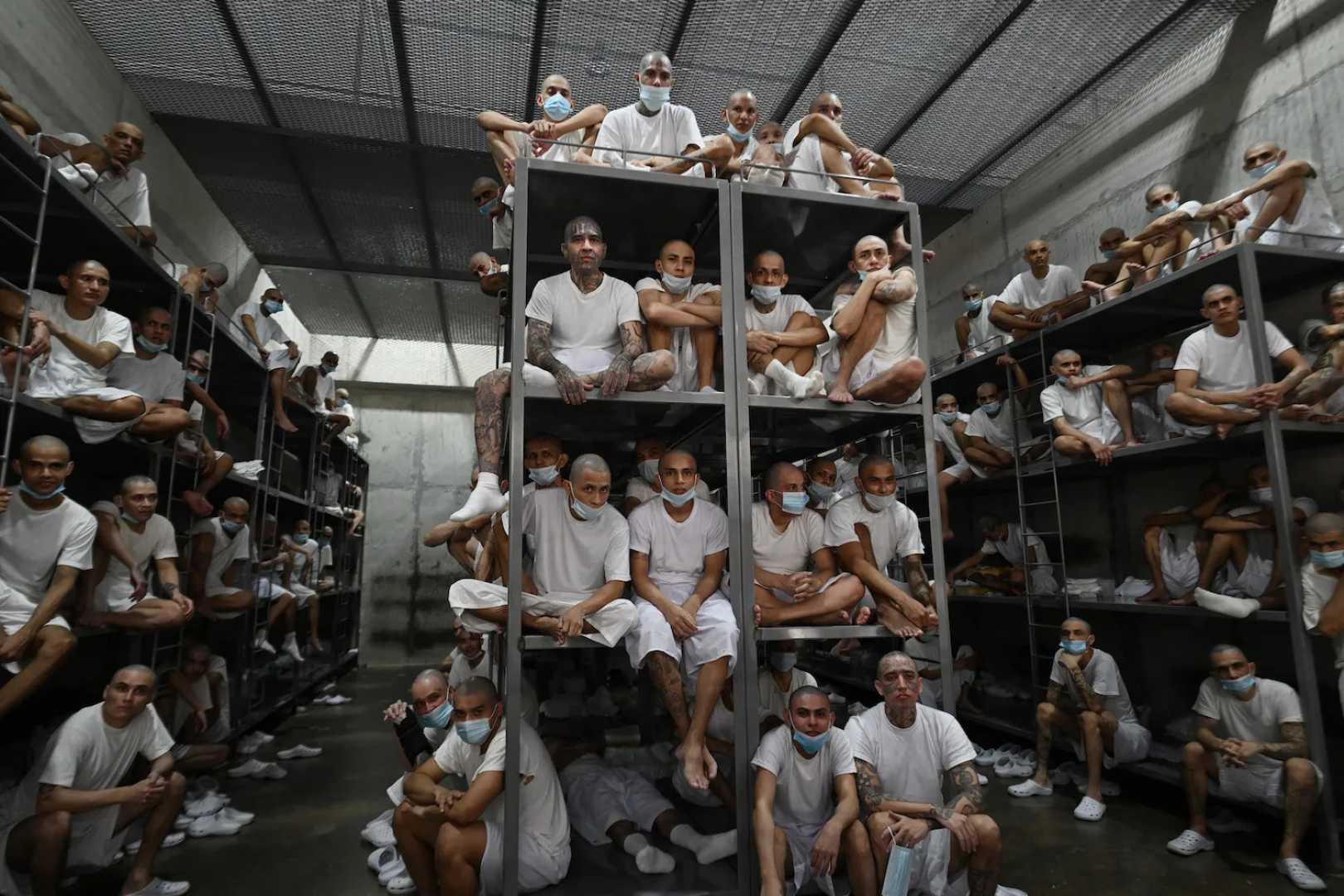Politics
Trump Proposes Detaining U.S. Citizens in El Salvador Prisons

WASHINGTON, April 14 (AP) — President Donald Trump announced his administration is exploring the possibility of deporting U.S. citizens convicted of violent crimes to prisons in El Salvador. This controversial proposal, revealed during a meeting with El Salvador’s President Nayib Bukele, has ignited a firestorm of criticism from legal experts and civil rights advocates.
During a press event on Monday, Trump expressed interest in utilizing El Salvador’s prisons, specifically the Terrorism Confinement Center (CECOT), to house U.S. citizens deemed as ‘homegrown criminals.’ “We’ve got homegrown criminals that push people into subways, that hit elderly ladies on the back of the head with a baseball bat when they’re not looking, that are absolute monsters,” Trump said. He emphasized that the move would occur only if the administration determines it’s legal.
Critics have called the proposal unconstitutional and dangerous. Legal experts have pointed out that U.S. law does not allow for the deportation of citizens based on criminal convictions. “There is no provision under U.S. law that would allow the government to kick citizens out of the country,” said Erin Corcoran, a professor of immigration law at the University of Notre Dame.
Trump’s conversation with Bukele highlighted El Salvador’s willingness to accept U.S. prisoners. Bukele assured Trump that they have sufficient space to accommodate these individuals. “Yeah, we’ve got space,” Bukele stated, indicating that El Salvador is prepared to collaborate on this controversial scheme.
David Bier, an immigration policy expert at the Cato Institute, remarked, “It’s obviously unconstitutional, obviously illegal. There’s no authority in any U.S. law to deport U.S. citizens and certainly not to imprison them in a foreign country.” Bier raised concerns that this proposal marks a significant encroachment on the civil liberties of American citizens.
The backlash includes a letter from Senator Jon Ossoff, a Democrat from Georgia, condemning the poor conditions in Salvadoran prisons. He expressed that it would be a “moral and legal travesty” to expose any individual to such an environment.
The ACLU also strongly opposed the notion, asserting that U.S. law prohibits the deportation of American citizens. “You may not deport a U.S. citizen, period,” said Lee Gelernt, deputy director of the ACLU’s Immigrants’ Rights Project.
Trump claimed the proposal has been discussed multiple times, both publicly and privately. During a recent news conference, he instructed U.S. Attorney General Pam Bondi to explore the feasibility of enforcing such a plan. Bondi indicated potential legal backing for the proposal, stating that it could reduce crime significantly.
Despite significant resistance, the proposal has not attracted much response from Republican lawmakers or conservative legal scholars, leaving some experts, like Bier, shocked by the apparent lack of concern within the party. “It’s unthinkable,” he said. “It’s absolutely a reflection of where Donald Trump has taken the Republican Party and the conservative movement.”
This latest development comes amid a broader discussion around Trump’s aggressive immigration policies and his previous comments about locking up political opponents. Legal scholars are worried that such notions of deporting American citizens could establish a dangerous precedent for executive overreach.
Moreover, substantial questions remain about the due process that U.S. citizens would receive prior to being sent to foreign prisons. “The courts will almost certainly prevent this from happening,” suggested one legal expert from NYU, cautioning that the proposal opens a broader discussion about how citizens are treated under American law.
Given the potential constitutional breaches and the ethical implications surrounding such a policy, civil rights advocates continue to urge lawmakers and the public to oppose any efforts that may strip away the rights of U.S. citizens.












